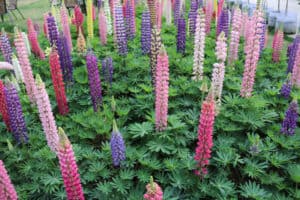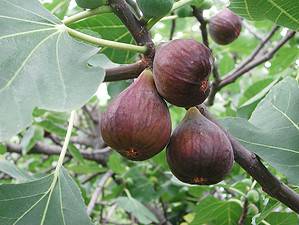While some insects are welcome visitors in many gardens, others can be troublesome. Among them are earwigs, and while these insects are negligible in small numbers, they can have devastating effects on certain plants if their populations are large enough. Luckily, there are a wide variety of methods gardeners can use to naturally repel these insects. Some individuals choose to spray insect repellent solutions on their plants while others prefer to release their natural predators in the area. However, getting rid of earwigs can be as easy as planting a few extra vegetables and herbs in your garden. Let’s explore 11 plants that are sure to keep earwigs far away from your home and garden.
1. Garlic
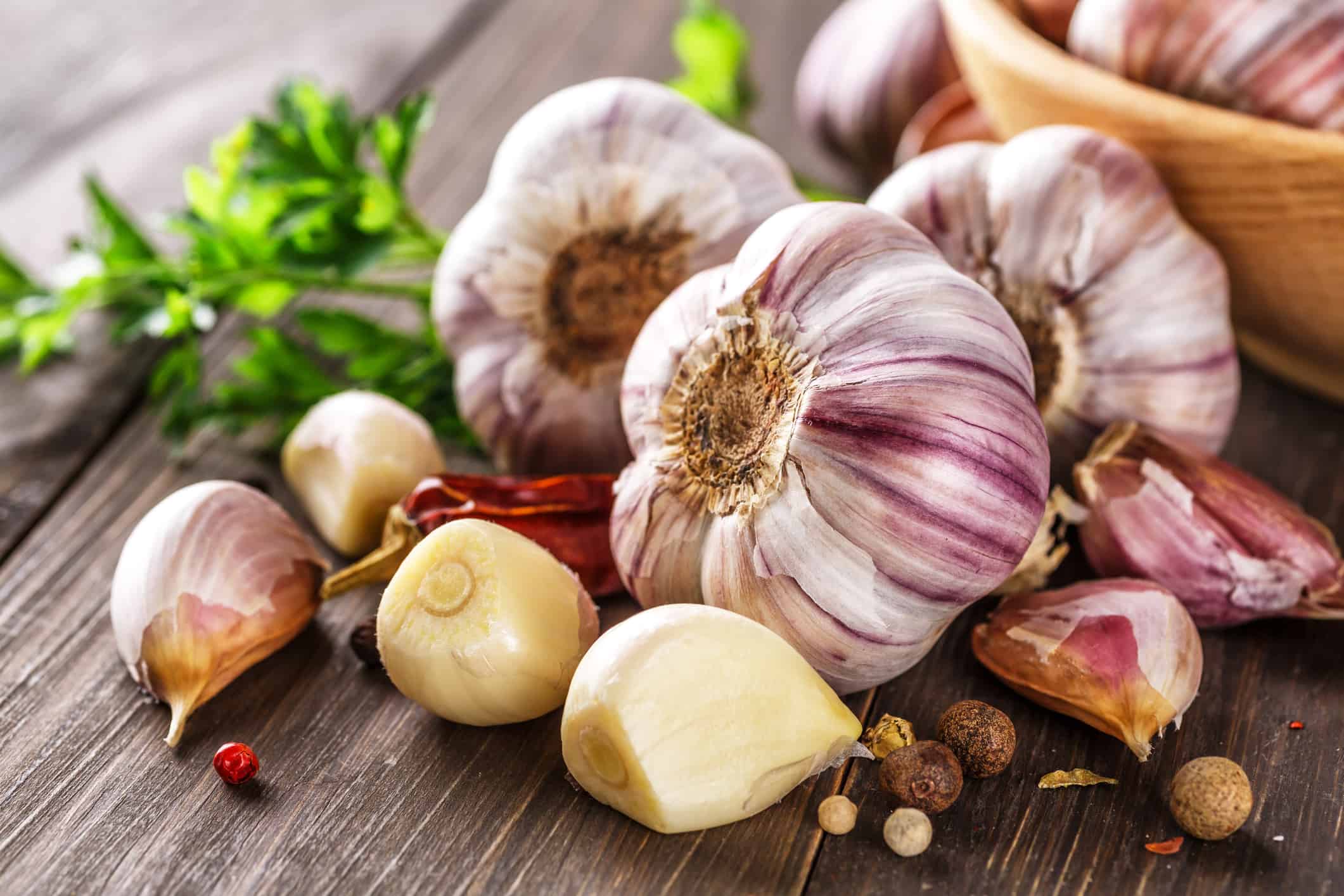
In addition to being a powerful insect repellent, garlic is also delicious and healthy.
©IURII BUKHTA/iStock via Getty Images
This vegetable is famous for its ability to keep vampires at bay. However, it also has a powerful effect on earwigs, and planting this vegetable will help keep them far away from your garden. In addition to being universally hated by earwigs, other pest insects such as mosquitos, ticks, and wasps can’t stand it either.
2. Peppermint

Although earwigs can’t stand the smell of peppermint, many people find it pleasant which makes this plant a win-win for gardeners.
©rawf8/Shutterstock.com
Many insects have trouble grappling with strongly scented herbs, and peppermint is no exception. This herb has the ability to deter many insects, and it is a common component in natural bug sprays. Planting peppermint works best, but those who can’t cultivate this herb can sprinkle a few drops of peppermint essential oil around their garden beds to keep these pests away.
3. Lavender
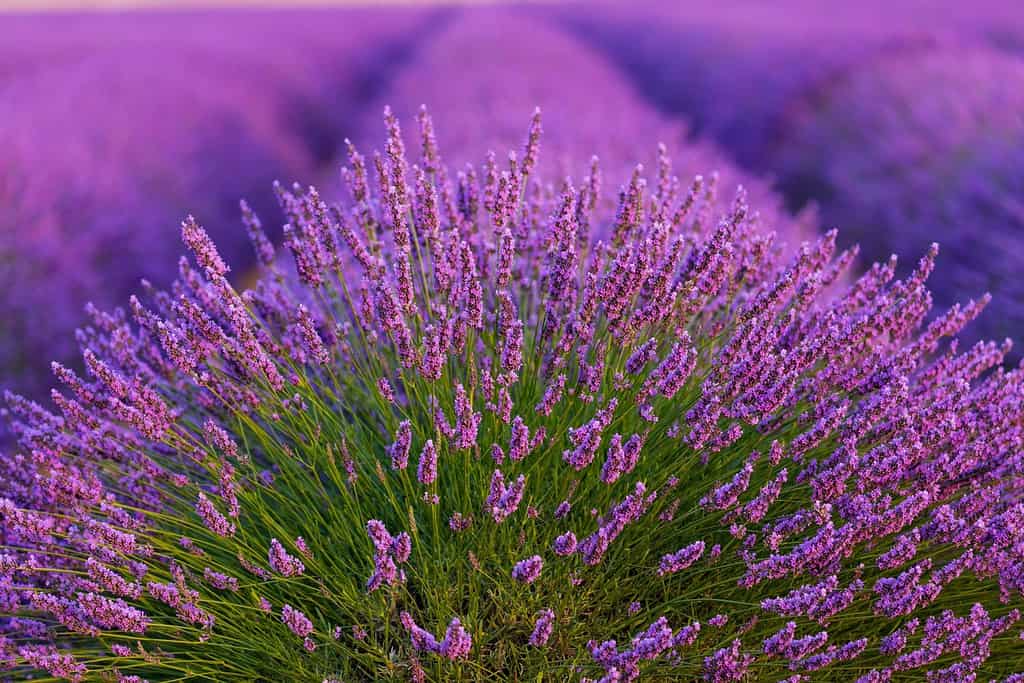
The peak bloom time for lavender is during the summer months.
©Juan Carlos Munoz/Shutterstock.com
Much like peppermint, lavender is an herb with a strong fragrance commonly disliked by insects. On the other hand, lavender is almost universally loved by humans, and many people praise it for the calming effect it has when inhaled.
4. Marigold
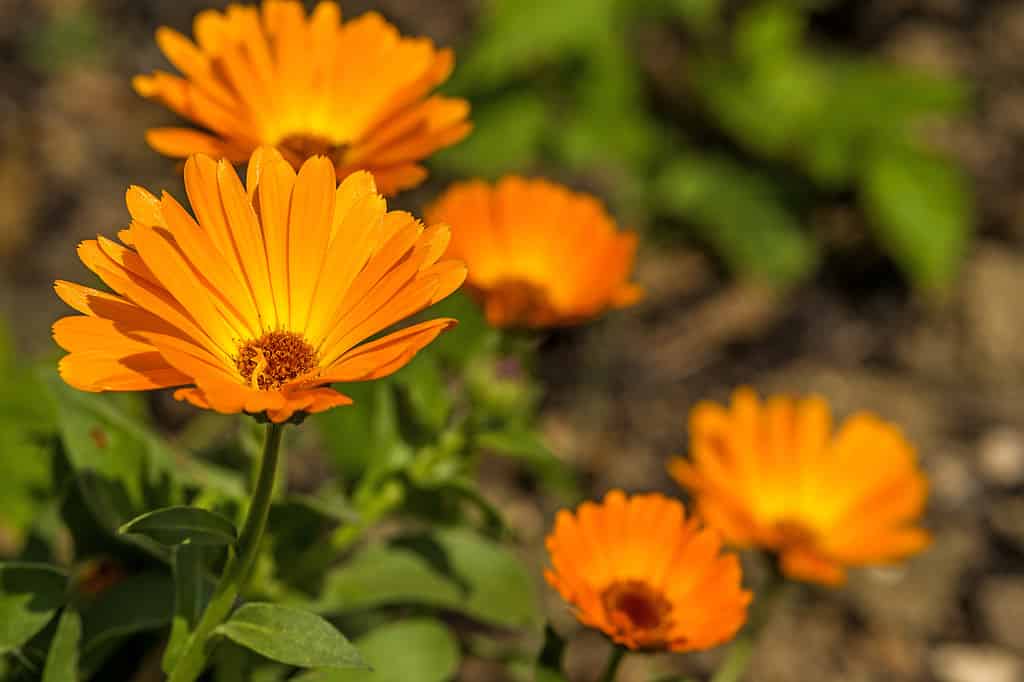
Marigolds belong to the family
Asteraceae.
©iStock.com/HansJoachim
These flowers are useful for much more than just aesthetics. In fact, if you’re looking to uproot an earwig population, these golden blossoms will do the trick. Although this flower won’t repel earwigs itself, it will attract their natural predators. If your garden is full of animals that eat earwigs, their population is sure to decrease.
5. Onion
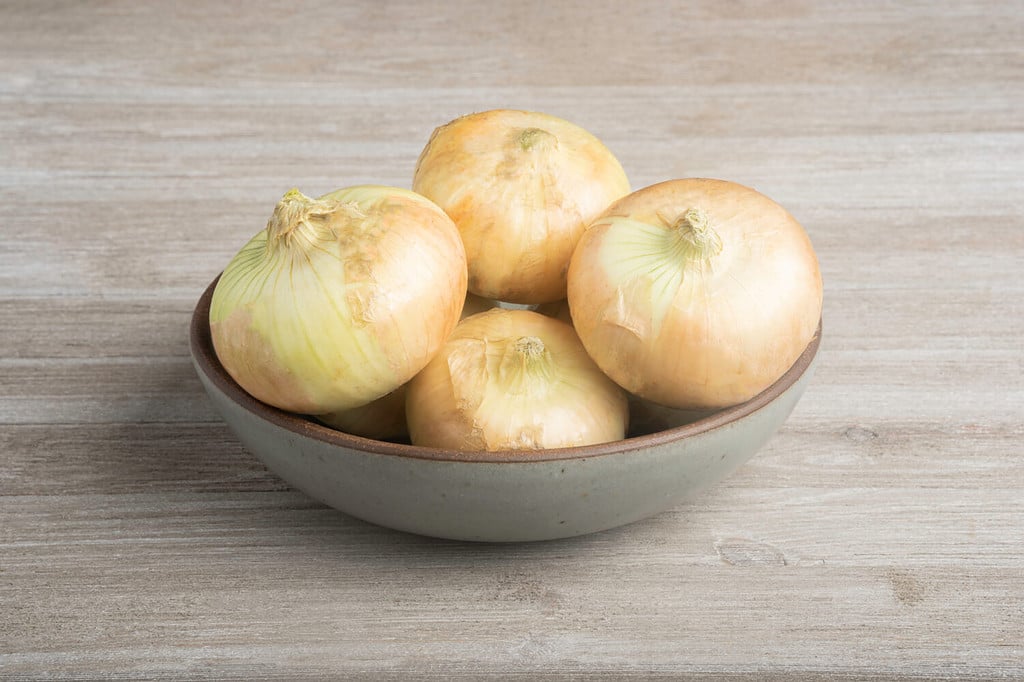
This vegetable is a good source of Vitamin C, Vitamin B6, fiber, and beta-carotene.
©Dominique James/Shutterstock.com
Onions can be a divisive vegetable, and many people either love them or hate them. However, one thing is for sure: earwigs abhor them! Similar to garlic, planting onions can deter a myriad of insects and other garden pests.
6. Dill
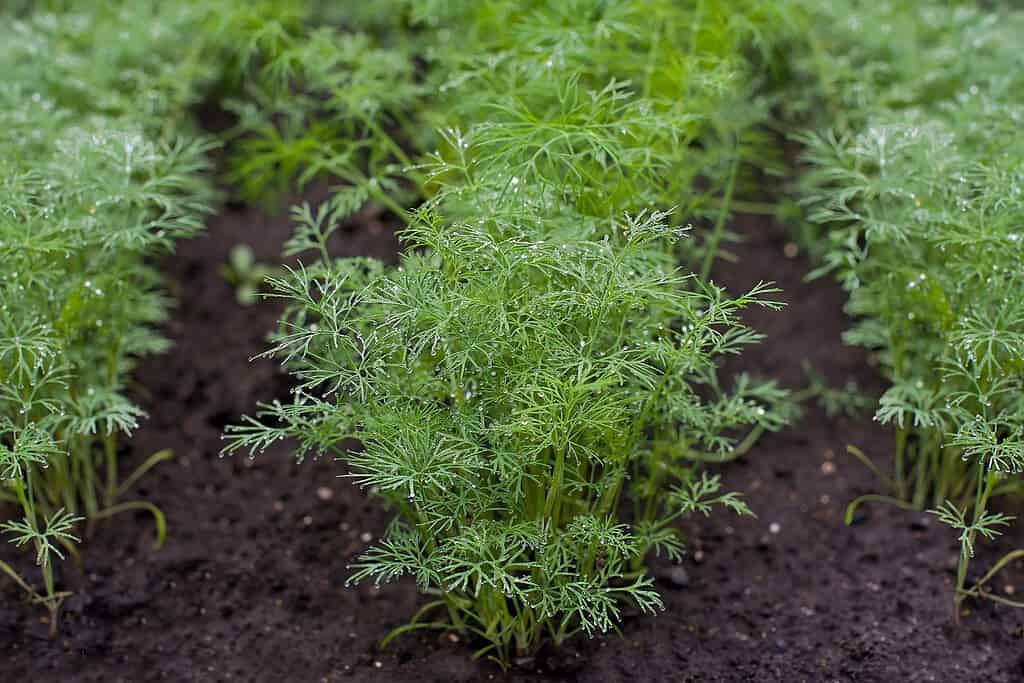
Individuals looking to attract butterflies to their garden will find that dill is a win-win, as this plant is a favorite of swallowtail butterflies who prefer to lay their eggs on this plant after mating.
©PaniYani/Shutterstock.com
Dill is another wonderful herb to plant if you notice your garden becoming overrun with a variety of insects, as it has the power to repel spider mites, aphids, squash bugs, and of course, earwigs. It might also have the ability to attract birds to your garden that can feed on any earwigs.
7. Basil
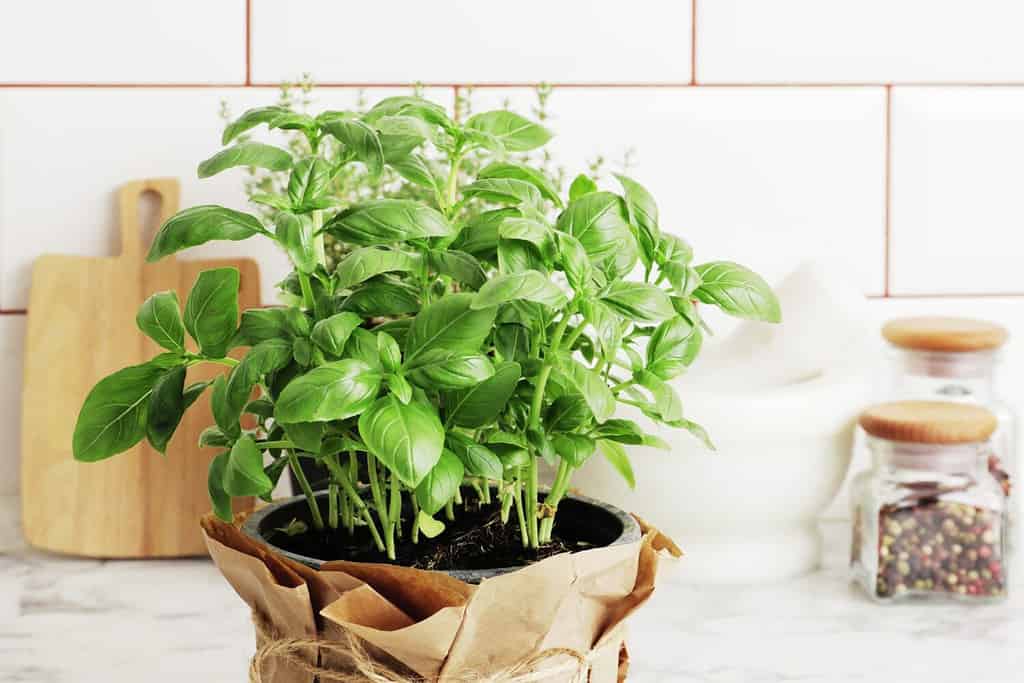
While basil is an effective insect repellent, it’s also a prevalent cooking ingredient.
©PandaStudio/Shutterstock.com
In addition to being one of the most popular herbs of all, basil is actually quite an effective insect repellent. This herb is easy to maintain, and both experienced and amateur gardeners alike will enjoy growing it. While basil grows well outdoors during the warmer months, gardeners can bring this herb inside throughout the winter to deter bugs that might want to come into their home when it’s cold.
8. Eucalyptus

Eucalyptus belongs to the family
Myrtaceae.
©Pixel-Shot/Shutterstock.com
While many people enjoy keeping eucalyptus around for the calming effect its fragrance has, it can also be used to deter a variety of pest insects. A journal authored by Sheikh et al. concluded that eucalyptus essential oil was a powerful mosquito repellent. In addition to repelling mosquitos, this plant also repels ticks, flies, and earwigs.
9. Alyssum
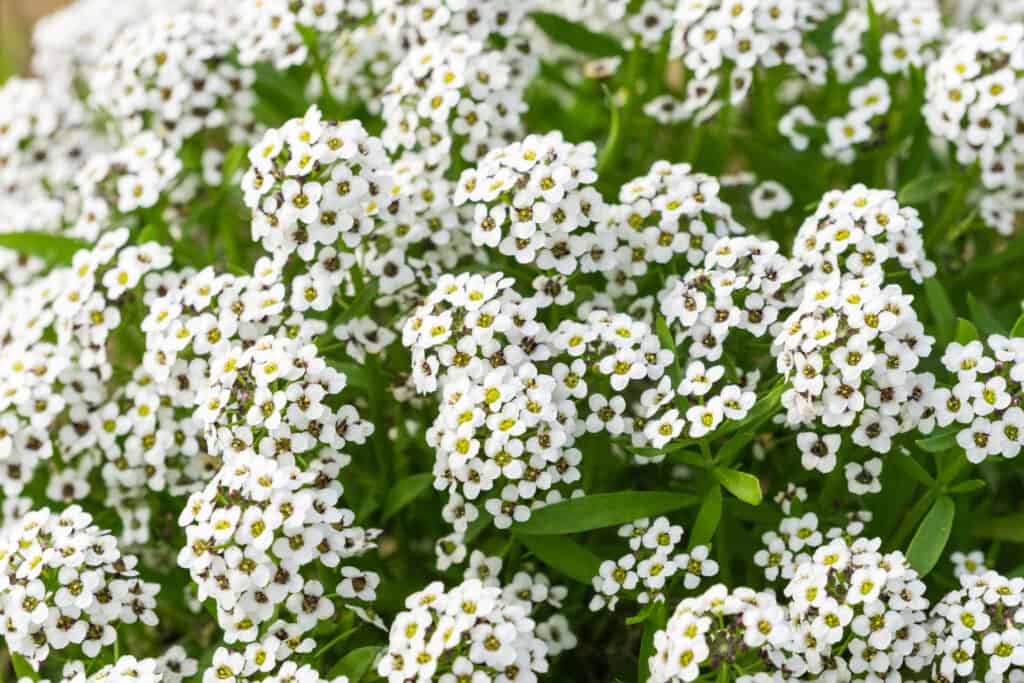
This flower may be functional, but it also adds a touch of elegance to any home or garden.
©iStock.com/Sundry Photography
Similar to marigolds, alyssum will help attract earwigs’ natural predators to your garden. This flower is a favorite of the tachinid fly in particular, and these insects serve as pest control for a number of different species, including earwigs.
10. Fennel
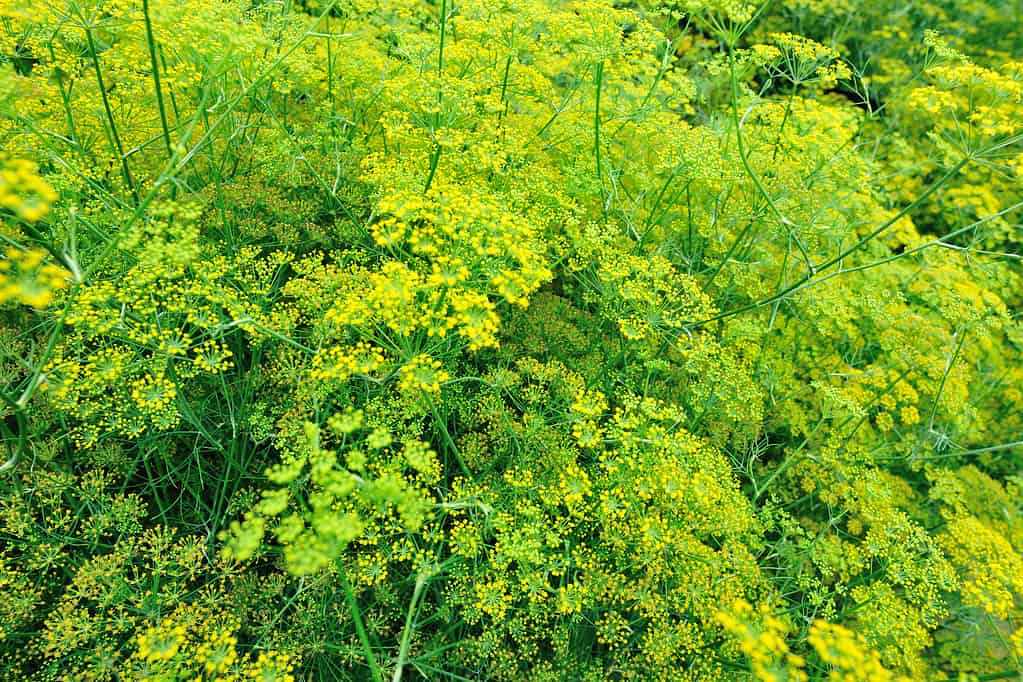
Fennel is a great source of fiber and Vitamin C.
©lzf/Shutterstock.com
An excellent plant that gardeners can incorporate into their yards to control earwig populations is fennel. This is another plant that tachinid flies just can’t get enough of, and keeping it around will help reduce the number of many pest insects.
11. Wormwood
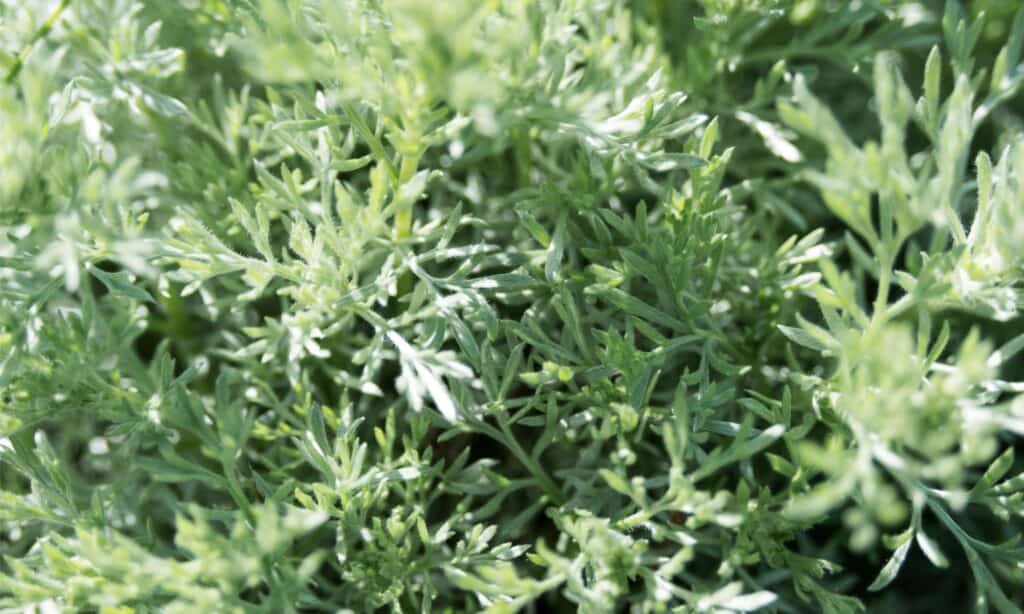
While wormwood is a powerful insect repellent, it is also medicinally significant.
©iStock.com/Larysa Lyundovska
This plant is famous for its powerful scent, and although many people love it, many insects hate it. Earwigs in particular seem to be repulsed by wormwood, and planting it in your garden will ensure that they stay far, far away.
The photo featured at the top of this post is © iStock.com/Sundry Photography
Thank you for reading! Have some feedback for us? Contact the AZ Animals editorial team.



